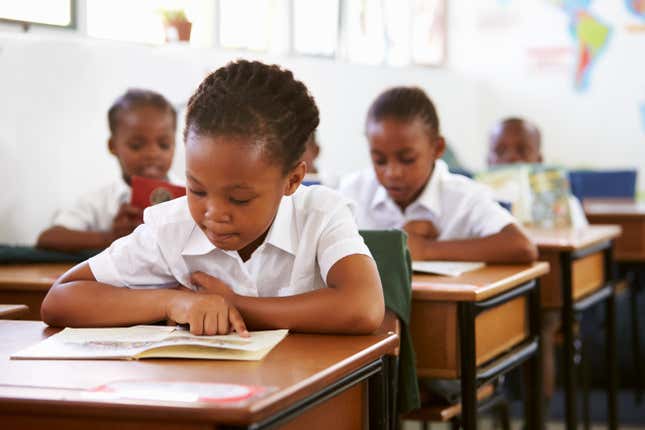
The Detroit Public Schools Community District is using federal COVID-19 relief money to create programs that will help students account for the learning loss after pandemic-related classroom closures forced them to learn from home. But school officials hope the $1.3 billion in aid they received also helps put Detroit students on track for success after years of lagging academically.
Detroit schools have frequently performed behind the rest of the country. Last school year, less than six percent of the city’s eighth-graders received proficient standardized state test scores in math.
Schools Superintendent Nikolai Vitti believes the district’s poor performance should be blamed on problems that existed when it was controlled by the state of Michigan until 2017.
Vitti says Detroit schools were making progress before the pandemic derailed everything. But he believes the federal pandemic funding will help Detroit close the long-existing learning gap. “This is the first time ... I actually feel we have equitable funding,” Vitti said. “Unfortunately, it had to come during a pandemic.”
The federal government distributed $190 billion in pandemic relief to schools across the country. Areas with high rates of poverty received the largest share per student.
Detroit’s share amounted to nearly $25,000 per student. The district says it is using the funds to support reducing class sizes and implementing tutoring and literacy programs designed to give students additional academic support.
Laela Bullock, a 15-year-old Detroit student, has regularly struggled in school. And the problem only got worse when she was forced to learn from home. But after participating in a one-on-one tutoring program, Bullock has seen her grades improve and is on track to graduate on time. “I’m so proud,” her mother, Alicia Bullock said.
But raising test scores isn’t the only problem Detroit public schools face. Parents say safety is a major issue in the city’s public schools and a key obstacle to their children’s learning. In addition to the academic programs, the district plans to use the funds they received to invest in raises for teachers and staff and programs that address the students’ social and emotional needs.
“Right now, for 10th-12th graders, 60% are off-track on graduating in four years,” Vitti said. “We are rebuilding schedules to make sure course recovery is happening. We’re paying teachers more to give up a prep period to offer more course recovery. It’s highly daunting and troubling, but we will get students back on track.”
Phyllis Jordan, associate director of FutureEd, an independent think tank in Georgetown University’s McCourt School of Public Policy, says school districts receiving federal funds have a unique opportunity to right some of the wrongs they have not been able to address for years. She says how these districts spend the money they receive is crucial. “It’s really important to get it right,” she said. “I don’t see this opportunity really coming around again. This is an opportunity for schools to get things right to address some of the long-standing issues that keep kids from succeeding,” she said.

